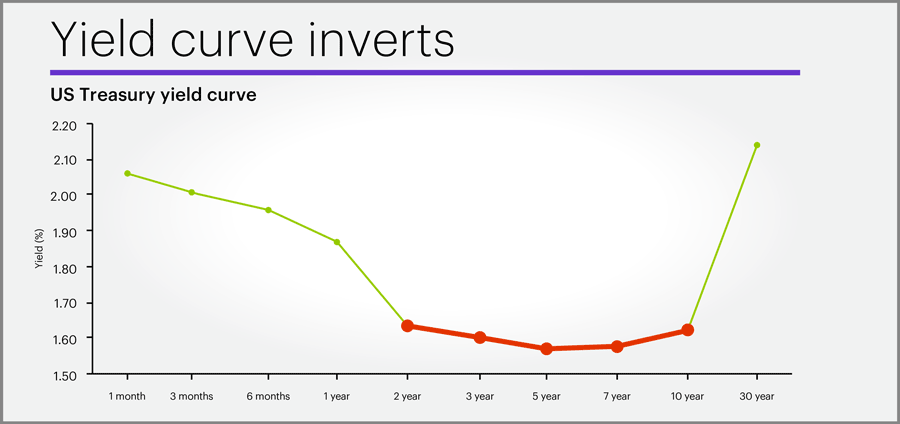We will never correctly anticipate what flavor of shit will hit the fan,
but we can calculate the trajectory and attempt to avoid the splatter.
- James Alan Gardner, All Those Explosions Were Someone Else’s Fault
This week's featured post is "Follow-up to 'How Should We Rewrite the Second Amendment?'" Last week's post somehow went viral in the pro-gun world, earning me a stream of negative comments. Those comments are a window into the minds of people I don't usually hear from.
One type of comment I forgot to cover in that piece. A number of commenters couldn't imagine that I really was what I claimed to be: a person of generally liberal views who nonetheless was trying to figure out what the right policy might be. Clearly I was a confiscate-them-all anti-gun radical who was just trying suck people in by pretending to rationally evaluate a variety of views.
I don't know if there's any worthwhile response to that level of cynicism and closed-mindedness. I suspect there's some projection going on. People who often argue in bad faith easily imagine that other people are doing the same thing.
This week everybody was talking about the Trump Show
He outdid himself this week, unleashing a variety and extremity of presidential craziness that used to exist only in satire. Republican strategist Rick Wilson described the President's week like this:
A combination of waking hallucinations, verbal tics, lies surpassing even his usual fabulist standard, aphasias and lunatic blurtings
James Fallows said what we've all been thinking:
If Donald Trump were in virtually any other position of responsibility, action would already be under way to remove him from that role.
I could easily spend all my time this week talking about how nutty this stuff is, but I think that's what he wants: that we should talk about him and his antics rather than the signs of a slowing economy, the badly misconceived trade war with China, his continuing vassalhood to Vladimir Putin, the ongoing climate disaster, the unlikelihood of getting any Republican cooperation toward limiting gun violence, and so on.
So I'm going to assume you've heard about the individual trolling incidents already, not mention what he said, and skip straight to the debunking:
- Jews do not believe in the "second coming of God", because their God never left.
- American Jews are Americans, not Israelis, so they can't be disloyal to Israel.
- There is no magic drug to stop veteran suicides.
- Nukes don't stop hurricanes.
- Greenland was never for sale, but a member of the Danish Parliament is offering the US a better deal than that.
- The Chairman of the Federal Reserve is not an enemy of the United States.
If you've been away from the news all week, looked at that list, and said "What?" you've understood how the rest of us have felt this week. It was seven days of "What?"
and the possibility that Trump's trade war will start a recession
Bill Clinton famously felt your pain. Trump defender Lindsey Graham wants you to accept the pain this administration's trade war is giving you.
The slowing economy and Trump's tariffs' role in slowing it was probably the main thing the Trump Show was supposed to distract us from. Experts are divided on whether a recession will hit before the election, but I think this is a technical debate that is going to go right over the heads of the electorate: Growth is slowing down, and is likely to keep slowing down. Whether it's at .1% or -.1% on election day may matter to economists, but voters probably won't be able to tell the difference.
Typically, recessions are not uniform across the country. Large chunks of rural America (the people Trump promised to help) are probably already in recession, while some hot spots may miss a recession entirely.
Wapo columnist Catherine Rampell notes one economic hazard we've never experienced before: Trump never admits his mistakes, so if his policies cause a recession, he'll insist on doubling down on them.
The possibility of a synchronized global downturn would require some sort of coordinated global policy response, just as it did a decade ago during the Great Recession. But rather than evaluating how we got to the present situation, or how to make amends with the allies we might need to help get us out of it, we already know what Trump’s objective will be: proving his very wrong ideas were very right all along.
All the airtime went to Trump's "joke" about being "the chosen one" to stand up to China, but the real problem with his Chinese trade war is not getting the attention it deserves. Yes, there are long-standing disputes about the trade deficit (which Trump misunderstands) and more importantly about protecting US intellectual property. You can make a good case that the US needed to pressure China to play by the established rules of international trade.
The point that often gets lost is that Trump has implemented this pressure in a very stupid way: with unilateral tariffs rather than acting in cooperation with the EU, Japan, and our other allies. (That was the direction President Obama was headed with the Transpacific Partnership that Trump pulled the US out of.) Not only does unilateral action have a smaller effect on China than pressure from all sides, but it's also less effective psychologically and politically. The way Trump has set this up, he's asking China to yield to the United States. For China, that's a more humiliating option than changing its behavior in order to join the world community.
Xi can stand up to Trump and spin that to his own people as defending China's honor against American aggression. That spin would be much less convincing if he were thumbing his nose at the whole world.
One of the week's more insane tweets deserves a little attention:
Our great American companies are hereby ordered to immediately start looking for an alternative to China, including bringing your companies HOME and making your products in the USA.
Just about everybody who read that balked at the word ordered. Ordered? Since when does the president give orders to American businesses? I can barely imagine the wave of conservative outrage if President Obama had tried to order private corporations around.
Well, Trump insists he has that power.
For all of the Fake News Reporters that don’t have a clue as to what the law is relative to Presidential powers, China, etc., try looking at the Emergency Economic Powers Act of 1977. Case closed!
Vox' Anya van Wagendonk disputes that.
The president is not correct in this assertion. The Economic Powers Act allows the president of the United States to regulate commerce during a national emergency. It does not allow a president to order companies to close their factories in foreign countries, however. And as there has not yet been a national emergency declared with respect to Chinese trade, Trump’s present abilities to govern economic interactions with China are limited to measures like tariffs.
Whatever the EEPA allows, using it would have to follow the same pattern as Trump's money-grab to build the wall:
- Declare a specious national emergency.
- Veto Congress' attempt to cancel the emergency.
- Keep the support of at least 1/3 of one house of Congress, so that the veto can't be overriden.
That's not exactly a recipe for one-man rule, but it's close: rule by one man supported by 34 senators.
One problem we'll face if a recession does start is that there's not much to fight it with. Typically, governments shorten and mitigate the effects of a recession in two ways: fiscal and monetary. In other words, the government stimulate public-sector demand by running a deficit, and the central bank stimulates private-sector demand by cutting interest rates
Well, the fiscal stimulus got used up in tax cuts to big corporations and rich people like Trump himself. We're already going to run a $1 trillion deficit next year without any special recession-fighting programs. How much higher do we really want that to go?
And by historical standards, interest rates are quite low already. Trump is complaining that it's not fair that Germany gets to pay negative interest rates while his government pays positive rates. To me, that's like complaining that your friend with a broken leg gets opiates while you don't. We don't want our economy to be in the situation Germany's is.
and the Amazon region is on fire
The thousands of fires burning in the Amazon rain forest are calamitous for two reasons: First because they release lots of carbon dioxide into the atmosphere, and second because the forest may not grow back.
Scientists fear parts of the Amazon could pass a critical threshold and transform from a lush rainforest into a dry, woody grassland. And that could bring catastrophic consequences not only for people in South America, but also for everyone around the world.
Some of the fires are accidental, but a large number are intentional.
Instead of axes and machetes, people now use bulldozers and giant tractors with chains to pull down the Amazon’s towering trees. A few months later, they torch the trunks. It’s the only realistic way to remove such huge amounts of biomass, Morton said. “It’s slash and burn, 21st century.”
Thousands of acres at a time are being cleared for large-scale agriculture, he added. The land is primarily used as pasture for cattle — one of Brazil’s major exports — or for crops such as soybeans.
Some of the larger fires may be intentional deforestation fires that got out of control.
This is at least partly the consequence of Brazil's electing Jair Bolsonaro as president.
Bolsonaro has railed against protections for indigenous land and promised to boost the country’s economy. He has also weakened the government’s capacity for oversight and indicated he would not go after farmers, loggers and miners who seize and clear forest.
Bolsonaro is sometimes referred to as "the Trump of Brazil", and there are a number of similarities. For starters, his first response to reports of Amazon fires was to blame his enemies: environmentalists are setting the fires to make him look bad. Like Trump, he made the claim without citing any evidence.
More than a soccer field’s worth of Amazon forest is falling every minute, according to Brazil’s National Institute for Space Research, known as INPE. Preliminary estimates from satellite data revealed that deforestation in June rose almost 90% compared with the same month last year, and by 280% in July.
Bolsonaro called this report "a lie" and has fired INPE's director.
and (coincidentally) David Koch
I think it's unseemly to gloat over someone's death. But I'm also not willing to pretend that none of David Koch's evil deeds matter now, as if he were just an opponent in a game that his death brings to an end.
The New Republic interviewed Christopher Leonard, author of Kochland: The Secret History of Koch Industries and Corporate Power in America.
Koch Industries—that is, David and Charles Koch and their political network—has played an almost unparalleled role in helping to cast doubt on the basic science behind climate change; create doubt in the public mind that climate change is real; and particularly, most importantly, to cast doubt on the idea that government regulation can or should do anything to regulate greenhouse gas emissions.
As early as 1991, Republican President G. H. W. Bush was ready to start taking action on climate change. And as late as 2007, candidate John McCain was saying in his stump speech that the problem was real and demanded action. But the Kochs pretty well squelched the Republican willingness to face reality, and instead made rejection of climate science a litmus test on the right.
So this world we're living in -- with its wildfires in the Amazon, more powerful hurricanes, shrinking polar icecaps, and so on -- is to a certain extent the creation of the Kochs. And that story doesn't end with David's death. In the coming decades, millions of climate refugees will be looking for homes, probably causing wars and revolutions as destination countries try either to accommodate them or keep them out. That's part of his legacy too.
OK, I can't help myself; I'm going to repeat somebody else's snarky remark. Here's Matt Binder on The Majority Report podcast:
Per his request, David Koch will be cremated along with the rest of planet Earth.
and the G7
Trump is once again proposing to let his patron, Vladimir Putin, back into the G7. This is a dumb idea for two major reasons:
- Russia should never have gotten into the G7 in the first place, because G7 is a club of democratic nations with large economies. Russia does not qualify on either count. The point of including Russia in the 1990s was to encourage it to develop democratic institutions. That did not work.
- Russia was ejected from the (then) G8 in 2014 to condemn its conquest of Crimea. It still holds Crimea, and is continuing to fight an aggressive proxy war against Ukraine. Since 2014, Russia has been promoting right-wing nationalist movements across the West, including aiding Trump in the US and Brexit in the UK.
European Council President Donald Tusk rejected re-admitting Russia, and proposed instead that Ukraine be invited as a guest.
The US hosts the next G7. Trump is talking about holding it at his own golf resort in Miami. He's president, so why shouldn't he make some money off of government events? Maybe our next president will own an aerospace company and award himself all the Air Force contracts.
and you also might be interested in ...
Naturally, all Trump's cultists had to tell us what a brilliant idea buying Greenland is. The WaPo's Marc Thiessen wrote a column about it. (He focused on the strategic reasons for wanting Greenland, and completely ignored the Danish prime minister's point: that we don't buy and sell people any more.) And NRCC started fund-raising with a t-shirt showing Greenland as part of the US.
Puerto Rico is in the path of another hurricane.
The higher hurdles to get into the September debate is driving some Democratic candidates out of the race: Seth Moulton joins Jay Inslee and John Hickenlooper on the sidelines.
Michael Bennet, who likely won't be in the debate but so far seems to be staying in the race, slammed the DNC process for "stifling debate" and "rewarding celebrity". I can't raise much sympathy for him. In two debates and months of campaigning, he has done little to distinguish himself. What exactly does he bring to the discussion that no other candidate does? The "celebrity" candidates -- I assume he means Michelle Williamson and Andrew Yang -- may not have much in the way of presidential qualifications, but they each raise issues that other candidates don't.
In my reading of the polls, only five candidates have proved that they have a real following: Joe Biden, Elizabeth Warren, Bernie Sanders, Kamala Harris, and Pete Buttigieg. So far, Cory Booker, Amy Klobuchar, Julián Castro, Beto O'Rourke, and Yang (but not Williamson) have also qualified for the third debate, with Tom Steyer, Tulsi Gabbard, and Kirsten Gillibrand still in the running.
Notice anything strange about this lecture series?

and let's close with something too big to worry about us
NASA's photo of the day is of the Angel Nebula.


























